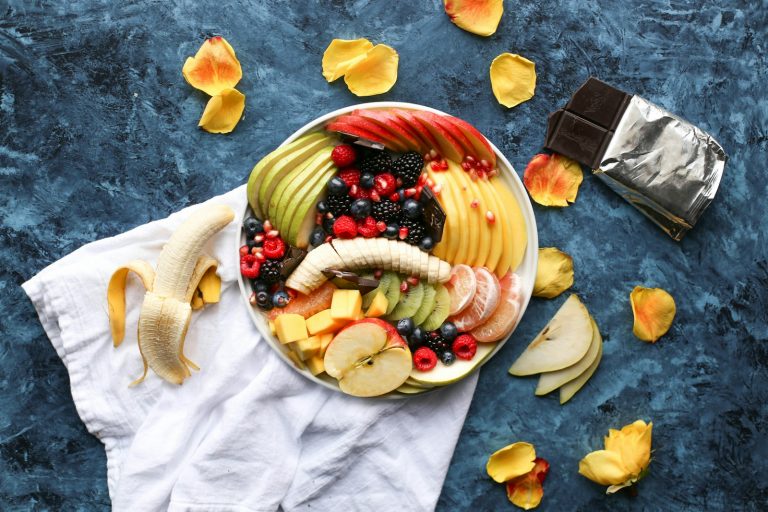When it comes to feeding your baby, there are many choices. What are some key facts about healthy snacks for babies that can help you make the best decisions? In this article, we will explore various aspects of healthy snacks, providing you with valuable insights to ensure your munchkin gets the nutrition it needs.
Nutritional Balance Is Key
Healthy snacks should be nutritionally balanced to support growth and development. Healthy baby snacks provide essential vitamins and minerals crucial during life’s early stages. Including a mix of lean proteins, carbohydrates, and healthy fats in your baby’s diet ensures they receive a well-rounded intake of nutrients. Fruits and vegetables offer vitamins and fibre, whole grains provide energy and fibre, and proteins support muscle and tissue growth. A balanced diet helps your baby maintain steady energy levels and promotes overall health. It’s important to offer a variety of foods to cover all nutritional bases.
Avoid Added Sugars and Salts
One crucial fact to remember is that babies do not need added sugars or salts. These additives can result in health issues such as tooth decay, high blood pressure, and poor eating habits later in life. The natural sweetness from fruits and the inherent flavours of vegetables are more than sufficient for your baby’s palate. Always read labels to identify the hidden sugars and salts, especially processed foods. Opting for snacks with no added sugars or salts helps keep your baby’s diet healthy and natural.
Homemade Snacks Offer Control and Customisation
Making snacks at home gives you complete control over the ingredients. This helps you to ensure that the snacks are free from artificial additives and tailored to your baby’s dietary needs. Homemade snacks can be customised to include a variety of textures and flavours, helping your baby develop a diverse palate. Simple homemade snacks such as mashed fruits, vegetable sticks, and small pieces of cheese can be both nutritious and appealing. Additionally, preparing snacks at home can be more economical and reduce packaging waste.
Store-Bought Snacks: Convenience and Nutrition
While homemade snacks have many benefits, store-bought snacks can also be healthy if chosen wisely. Many pre-packaged snacks are designed with nutrition in mind, offering a convenient option for busy parents. Look for snacks made with whole ingredients and minimal processing. Check labels for nutritional content and avoid those with added sugars, salts, and artificial ingredients. Store-bought snacks can be a lifesaver when you’re short on time or travelling, ensuring your baby still gets nutritious options.
Introducing New Foods Gradually
When introducing new snacks to your baby, it’s important to do so gradually. Start with single-ingredient foods and wait a few days before introducing another new food. This method helps identify potential allergies and ensures your baby’s digestive system can handle the new food. The gradual introduction also helps your baby get used to new textures and flavours without overwhelming them. This careful approach promotes a positive eating experience.
Involving Your Baby in Snack Preparation
Involving your baby in snack preparation can be a fun and educational experience. Simple tasks like washing fruits, stirring ingredients, or arranging food on a plate can engage your baby and make them more interested in eating. This involvement can also teach them about different foods and encourage healthy eating habits. Making snack preparation a shared activity helps build a positive relationship with food from an early age. It also gives your baby a sense of independence and accomplishment.
Healthy Snacking Habits for Long-Term Benefits
Establishing healthy snacking habits early on sets the foundation for a lifetime of good eating practices. Offering a variety of nutritious snacks helps your baby develop a taste for healthy foods. Avoid using snacks as a reward. Instead, use snack time to introduce new foods and provide balanced nutrition. Consistent healthy eating habits can help prevent childhood obesity and other health issues. Encouraging healthy snacks contributes to overall well-being and development.
How to Prepare Healthy Snacks for Kids at Home: A Step-by-Step Guide
- Choose Fresh Ingredients: Select a variety of fresh fruits, colourful veggies, whole grains, and lean proteins to ensure balanced nutrition for your kids.
- Wash and Prep: Thoroughly wash all fresh produce. Cut fruits and vegetables into small, eatable pieces suitable for your child’s age.
- Cook as Needed: Lightly steam or bake vegetables and proteins to make them tender and easy to eat. Avoid frying to keep snacks healthy.
- Combine Ingredients: Mix different food groups to create balanced snacks. Pair fruits with yoghurt, vegetables with hummus, or whole-grain crackers with cheese.
- Store Properly: Place prepared snacks in airtight containers. Store them in the refrigerator to keep them fresh and ready for quick access.
- Get Creative: Use colourful and fun shapes to make snacks visually appealing. Involve your kids in the preparation process to make it a fun activity.
Providing healthy snacks is essential for your child’s growth and development. Healthy baby snacks offer a balance of essential nutrients, helping to ensure your baby stays healthy and energised. By gradually introducing new foods and establishing healthy snacking habits, you set a strong foundation for your baby’s future health. Ensuring your baby’s snacks are nutritious and varied supports their overall well-being and development.



0 Comments